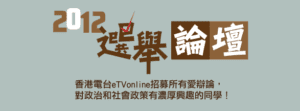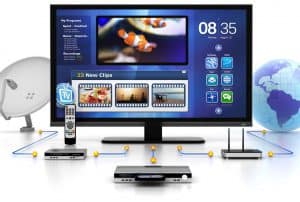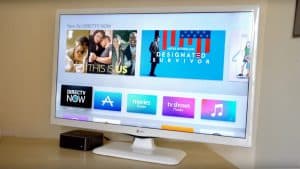Chen Weixin ( Lecturer, Faculty of Social Sciences, Chinese University of Hong Kong )In the news of Hong Kong society this month, apart from free TV licenses and population policies, international relations are mostly related to the inextricable bargaining between the SAR government and the Philippine government: the Chief Executive and Philippine President Aquino during the international conference The meeting of the three generations was exchanged for a series of diplomatic disturbances. A few days ago, when Aquino III met with the media, he even bluntly stated that he did not remember the name of the Chief Executive. “And I don’t know who Leung Chun-ying is.” It just reflects the portrayal of the current relationship between Hong Kong and the Philippines.To analyze the earlier stalemate in Hong Kong-Philippines relations, in addition to understanding the details of the diplomatic scene, it is also necessary to understand China-Philippines relations and Hong Kong’s international positioning. This article attempts to put forward several key points so that students can learn more about this “governance issue” that has been neglected in Hong Kong.1. Are Hong Kong and the Philippines in the same status?One of the important criticisms of the meeting between the Chief Executive and the Philippine President is that the meeting was not up to standard, and it seemed that the Philippine President “received” the Chief Executive, rather than the two “meeting” under an equal framework. Specifically, if the relationship between the two places is equal, the meeting between the heads of state of the two places should be set up to sit opposite each other, rather than a fragment of the meeting. Aquino III sits alone in the middle, and the Chief Executive and his officials Sit on the bottom right.Many people have misunderstood the international identity of Hong Kong and believe that the identities of Hong Kong and the Philippines are not equal, so it is not inappropriate for the Philippines to be in the middle. Undoubtedly, Hong Kong is not a sovereign country recognized by the international community, and is not on an equal footing with the Philippines in essence. For example, the Philippines is a founding member of the United Nations, but Hong Kong wants to send an ambassador to the United Nations. Article 150 of the Basic Law stipulates that Hong Kong officials become members of the Chinese delegation to represent China on these occasions.However, these regulations are not rigid in nature, and in many cases also involve the nature of the conference and the laws of individual countries. For example, although Hong Kong is not a party to the Vienna Convention, many countries, such as Canada and Germany, have granted Hong Kong ETOs the same rights as the Vienna Convention, such as tax treatment and consular protection. In addition, taking this APEC meeting as an example, Hong Kong participates as an independent customs territory. It is also an economic organization participating in the name of “Hong Kong, China” under Article 151 of the Basic Law, and it is a full member. , in the meeting with the national delegation is also on an equal footing. Therefore, in the OECD, the Chief Executive and the President of the Philippines both represent an independent customs territory, and they should be equal in etiquette.In fact, on other occasions, the Chief Executive’s dialogue with other participants was also handled in a reciprocal manner. For example, in a clip released by the Government Information Service with Singapore Prime Minister Lee Hsien Loong, the Chief Executive and the Singapore Prime Minister shook hands side by side. It can be seen that Hong Kong’s status in these international conferences is undoubtedly the same as that of other countries.2. The relationship between Hong Kong-Philippines relations and China-Philippines relationsThe Philippine President’s indifference to Hong Kong, and even the name of the Chief Executive who met with him a few weeks ago “deliberately” cannot be recalled. The meaning behind it is inevitably intriguing. In fact, diplomacy is different from our common international relations theories. It is aimed at the decision-making process, implementation methods and reception etiquette in foreign affairs. The training of diplomats has specialized institutions in other countries, while international relations mainly analyzes the background of national policies. The motivations and reasons behind it involve different philosophical views and world views. Therefore, “administrative errors” in foreign affairs are unacceptable because they reflect the interpretation of one country’s relationship with another. For example, when the relationship between the two countries is friendly, the host does not mind “upgrading” the entire meeting; but when the relationship between the two countries deteriorates, the two heads of state can meet each other without knowing each other, or even more seriously, recall the ambassador to show that the relationship between the two countries is temporary. interrupt. Although the relationship between Hong Kong and the Philippines has weakened due to the Manila hostage incident three years ago, the economic and trade relations between the two places are still frequent.In the final analysis, for Aquino III, Hong Kong is only a pawn in the macro-China-Philippines relationship, and does not involve individual treatment. Therefore, the starting point of the whole consideration is how to use the meeting to influence the wrestling between China and the Philippines. As we all know, China and the Philippines are now at odds in the diplomatic circles over the issue of sovereignty over the South China Sea. For example, China established Sansha City, and incorporated the disputed areas into China’s administrative management structure, and put down construction materials in the disputed areas to try to manufacture The image of “effective governance”. At the same time, the Philippines named the ocean the “West Philippine Sea” earlier, changing the name of the “South China Sea”, and protested against China’s actions from time to time. The relationship between China and the United States has not been friendly in recent years, and the Hong Kong-Philippines hostage issue has become the object of Aquino III’s play.In fact, from the perspective of the Philippines, Aquino III’s response just met the domestic nationalist sentiment towards China, and at the same time, China could not easily attack the Philippines. First, as far as the Philippines is concerned, disregard for Hong Kong is the basic principle of maintaining “one China”, so it is not easy for the Chinese side to attack on this. Take the case of the death of fisherman Hong Shicheng when the Philippine government opened fire on a Taiwanese fishing boat earlier. The Philippine side believes that if an apology and compensation are made to Taiwan, it would be a disguised recognition of Taiwan’s diplomatic independence, which is not in line with the “one China” principle. The two sides reached a consensus on the issue of apology and compensation for the incident, which more or less involved the real politics behind the South China Sea dispute. The interpretation of the Hong Kong-Philippines hostage incident is also based on this model of thinking.In addition, by viewing Hong Kong as a negotiating opponent rather than Beijing, the Philippines can use Hong Kong as a counterweight to China, thereby strengthening domestic support. Since the South China Sea disputes have worsened, Beijing has become the target of nationalism in the Philippines. In addition, the Philippine people have traditionally had a heroic culture, which is what Aquino III referred to as “cultural differences.” Therefore, showing weakness toward China is not in line with national conditions. . However, being too tough is not good for China-Philippines relations, so Hong Kong was chosen as an opponent to exclude Beijing on the grounds that “the incident has entered the Hong Kong-Philippines negotiation process”. At the same time, subject to the myth of “one China” and “single sovereignty”, the Beijing government will neither delegate power to Hong Kong to implement tougher “trade policies” such as embargoes and repatriation of Filipino domestic helpers, nor will the SAR government take the initiative to attack. In order not to be seen by the traditional leftists as overreaching, it is evident that the former Chief Executive Donald Tsang was attacked by conservatives in China and Hong Kong when he handled the incident. Therefore, Aquino III’s handling of the incident not only won the support of the citizens at home, but also saw the inadequacy of the “one country, two systems” framework at the foreign policy level, and proposed a strategy with a high security factor for the Philippines. Clumsy to respond, live up to the name of the Aquino family.
Menu
Monday, May 13, 2024








